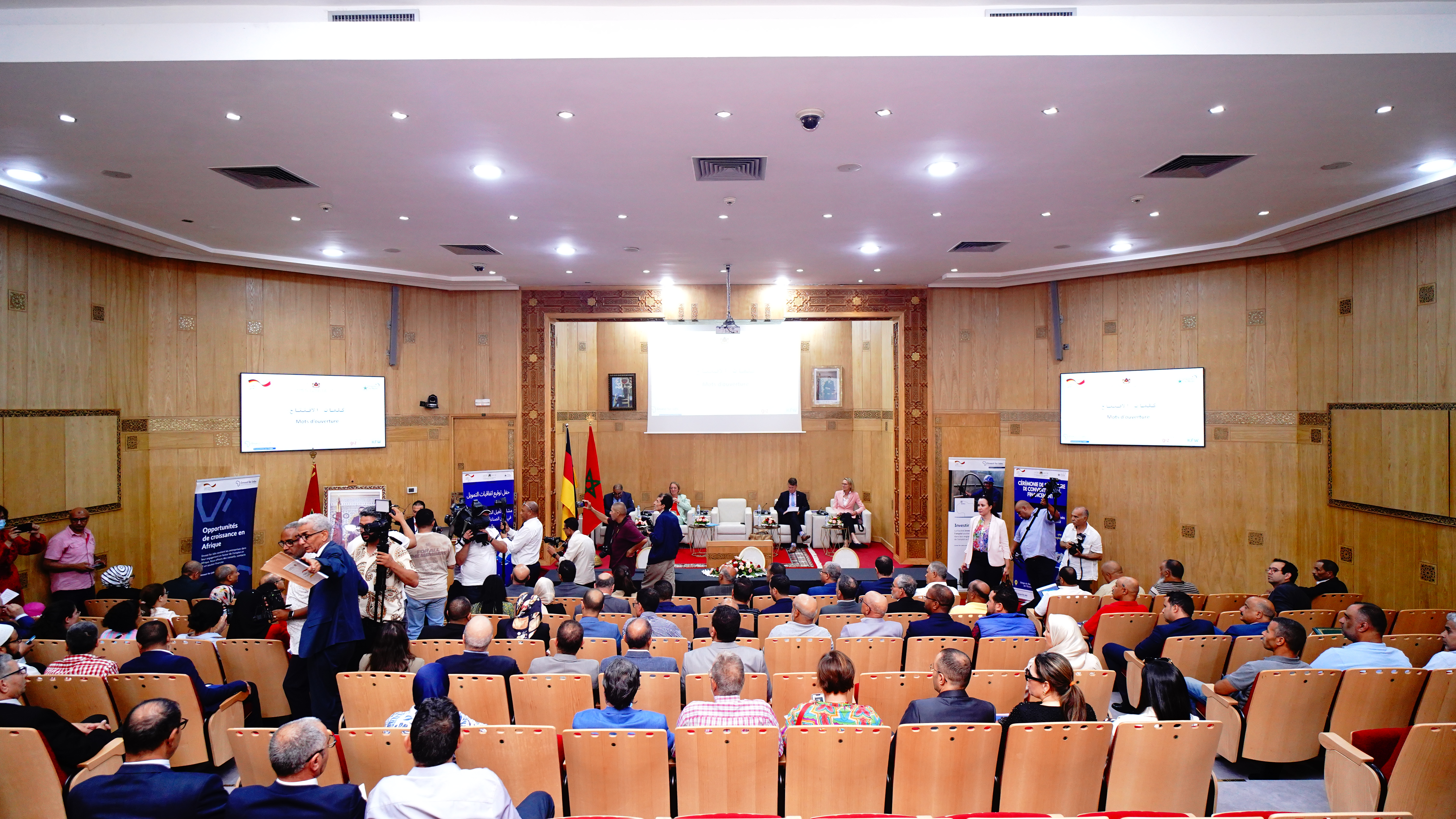The ceremony took place in Rabat on 12 June 2025. Investing for Employment (IFE) now has four projects in Morocco.
The Specialised Institutes of Traditional Arts of Rabat-Salé-Kénitra and Fès-Meknès became partners of the Facility Investing for Employment (IFE). They are embarking on a process of modernising their training centres with the aim of strengthening and diversifying their courses and responding to the needs of the labour market.
On 12 June 2025 in Rabat, the two Moroccan Institutes of Traditional Arts signed grant agreements with the Facility Investing for Employment (IFE). The ceremony was hosted by the State Secretariat for Crafts and Social Economy. Both grantees had submitted their applications in response to a Call for proposals launched by IFE in 2024. Together, the two projects are expected to train more than 600 people over the next few years and create 370 new jobs. The financing agreements are worth €1.51 million for the project to upgrade and rehabilitate the Institute of Traditional Arts in Rabat (ISAT-Rabat), and €1.02 million for a similar project at the Institute of Traditional Arts in Fès (ISAT-Fès). The two new investment projects mean that the total number of projects supported by IFE in Morocco now stands at four.
The signing ceremony was attended by the Secretary of State for Crafts and the Social Economy, Mr Lahcen Essaadi, representatives of the government authority in charge of vocational training, representatives of the German Embassy in Rabat and the KfW Development Bank, central and regional players from the crafts sector, as well as several vocational training operators and representatives of the private sector.
Mr. Lahcen Essaadi pointed out that the growing demand for the services of craftspeople, e.g. in the fields of air conditioning and car electrics, as well as the clear interest shown by young people in training geared towards professional skills, imposes a collective responsibility. This involves rethinking vocational training in the craft trades in a comprehensive way and adapting programmes to the local realities and the requirements of the job market.
For her part, Ms. Inge Gärke, IFE's Director General, congratulated the Crafts Department of the Ministry of Tourism, Crafts and Social Economy on having been awarded two grants for two separate projects, underlining the exceptional nature of this double success. She also congratulated the members of the two project teams for their commitment and the quality of the proposals submitted. She announced that many high-quality projects had been submitted by Moroccan applicants to the IFE's latest Call for proposals, and that further announcements concerning successful projects would be made shortly.
 © IFE
© IFE
The refurbishment of the Institut Spécialisé des Arts Traditionnels de Rabat involves extending the site and setting up three new training courses in different crafts. The aim is to meet the growing needs of the job market in rapidly growing industrial sectors such as refrigeration and air conditioning, photovoltaics and automotive electricity. The new building will include three modern workshops and fully-equipped classrooms, and will be designed to host practical training courses in line with current market standards. The training programme will primarily benefit young people from disadvantaged social groups, with a target of training 337 young people in the first three years of operation. Ultimately, the project wants to integrate 233 graduates into the labour market, through partnerships with local companies that committed to recruiting them and offering them good jobs.
The Institut Spécialisé des Arts Traditionnels de Fez will be expanded to include new workshops specialising in upholstery, plumbing, aluminium joinery, refrigeration and air conditioning, and low-voltage electricity. These new courses will meet strong demand from private operators in the region. The extension will enable the institute to train 125 young people each year and allow them to specialise in one of the five crafts. This project aims to integrate 138 young people into the job market.
The Facility will disburse its funding in a step-by-step process. Applicants will get access to the next tranche once they reach pre-defined milestones that are part of the grant agreement.
The Facility Investing for Employment (IFE) of KfW Development Bank is part of the Special Initiative "Decent Work for a Just Transition" of the German Federal Ministry for Economic Cooperation and Development (BMZ).